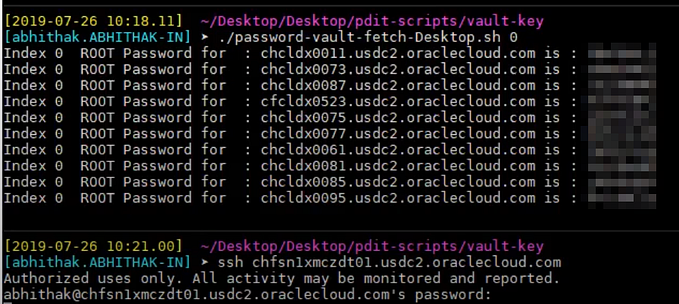Can I Set Up An Estate Plan Online? (2024)

Can I set up an estate plan online?
Setting up an estate plan online has become a popular option for many individuals seeking convenience and accessibility in managing their financial and personal affairs. With advancements in technology and the rise of online services, creating an estate plan from the comfort of your own home is now a possibility.
When considering whether you can set up an estate plan online, it is essential to understand the process involved and the tools available to help you navigate this important task. Online estate planning platforms offer a range of services to assist you in creating a comprehensive plan tailored to your specific needs and circumstances.
One of the key benefits of setting up an estate plan online is the convenience it offers. Instead of scheduling appointments with attorneys and making multiple trips to their offices, you can access online platforms at any time that suits you. This flexibility allows you to work on your estate plan at your own pace, without the need to adhere to traditional office hours.
Moreover, online estate planning services often provide step-by-step guides and templates to streamline the process. These resources can help you understand the various components of an estate plan, such as wills, trusts, powers of attorney, and healthcare directives. By following the prompts and instructions provided, you can ensure that your estate plan is comprehensive and legally sound.
Another advantage of using online platforms for estate planning is cost-effectiveness. In many cases, online services are more affordable than hiring a traditional estate planning attorney. This can be especially beneficial for individuals with straightforward estate planning needs who do not require extensive legal advice or customization.
It is important to note that while setting up an estate plan online can be convenient and cost-effective, there are certain limitations to consider. Online platforms may not be suitable for individuals with complex estate planning requirements or unique family situations. In such cases, seeking advice from an experienced estate planning attorney may be necessary to ensure that your plan adequately addresses all relevant considerations.
When using online estate planning services, it is crucial to conduct thorough research to choose a reputable and reliable platform. Look for services that have positive reviews, transparent pricing structures, and clear terms and conditions. Additionally, consider the level of customer support offered by the platform, as you may have questions or require assistance during the estate planning process.
Setting up an estate plan online can be a convenient and cost-effective option for individuals looking to take control of their financial and personal affairs. By utilizing online estate planning services, you can create a comprehensive plan that meets your specific needs while avoiding the complexities and expenses associated with traditional estate planning methods. However, it is essential to carefully evaluate the suitability of online platforms based on your individual circumstances and seek professional advice when needed.
The benefits of online estate planning tools
Online estate planning tools offer a convenient and efficient way for individuals to set up their estate plan from the comfort of their own home. These tools provide a range of benefits that make the estate planning process more accessible and affordable for a wider audience. Let’s explore some of the key advantages of utilizing online estate planning tools:
1. Cost-Effectiveness:
Online estate planning tools are often more cost-effective than traditional methods, such as hiring a lawyer to draft a will or trust. These tools typically offer flat-rate pricing or subscription-based models, allowing users to create essential estate planning documents without incurring high legal fees.
2. Accessibility: One of the primary benefits of online estate planning tools is the accessibility they provide. Users can log in to the platform at any time and from any location with an internet connection, making it easy to work on their estate plan at their own pace.
3. Convenience: With online estate planning tools, individuals can work on their estate plan at a time that suits them best, whether it’s during the day, in the evening, or on weekends. This flexibility eliminates the need to schedule appointments with lawyers and allows users to complete their estate planning documents efficiently.
4. User-Friendly Interface: Most online estate planning tools come with user-friendly interfaces that guide individuals through the estate planning process step-by-step. These platforms use language that is easy to understand, making it accessible to individuals who may not have legal expertise.
5. Customization Options: Online estate planning tools offer a range of customization options to meet the unique needs and preferences of each user. Individuals can personalize their wills, trusts, powers of attorney, and other documents to reflect their specific wishes and circumstances.
6. Secure Storage: Many online estate planning tools provide secure storage for completed documents, ensuring that important information is safely stored and easily accessible to designated loved ones or beneficiaries when needed.
7. Updates and Amendments: Online estate planning tools make it simple for individuals to update and make amendments to their documents as needed. Whether there is a change in family dynamics, financial situation, or wishes, users can easily edit their estate plan online without starting from scratch.
8. Educational Resources: In addition to document creation, online estate planning tools often offer educational resources such as articles, guides, and FAQs to help individuals better understand the estate planning process and make informed decisions about their legacy.
Online estate planning tools offer a user-friendly, cost-effective, and convenient solution for individuals looking to create an estate plan without the need for extensive legal assistance. These tools provide accessibility, customization options, secure storage, and educational resources that empower users to take control of their legacy effectively. Whether you are just starting your estate planning journey or looking to update existing documents, online estate planning tools can help streamline the process and ensure your wishes are documented accurately.
Factors to consider when setting up an estate plan online
Setting up an estate plan online can be a convenient and efficient way to ensure that your assets are distributed according to your wishes. However, there are several important factors to consider when embarking on this process to guarantee that your estate plan is comprehensive and legally sound.
One of the first factors to consider when setting up an estate plan online is the complexity of your assets and financial situation. If you have a simple estate with few assets and beneficiaries, you may be able to use online resources to create a basic estate plan. However, if your estate is more complex, with assets in multiple locations or significant wealth, seeking the advice of an estate planning attorney may be necessary to navigate the intricacies of estate planning.
Another crucial factor to take into account is the variability of state laws. Estate planning laws can vary significantly from state to state, so it is essential to ensure that your online estate plan complies with the specific laws of the state in which you reside. Failure to adhere to state laws could result in your estate plan being contested or deemed invalid, leading to unintended consequences for your beneficiaries.
When setting up an estate plan online, it is important to consider the level of customization and personalization that you require. While online estate planning services offer templates and standard documents, these may not adequately address your unique circumstances and wishes. Working with an attorney allows for a more tailored approach, ensuring that your estate plan reflects your individual needs and priorities.
Privacy and security are also significant factors to consider when creating an estate plan online. Entrusting sensitive financial and personal information to online platforms raises concerns about data privacy and the security of your documents. Before selecting an online service, conduct thorough research to ensure that the platform follows strict security protocols and encryption measures to safeguard your information.
Additionally, the ongoing maintenance and updating of your estate plan should be taken into consideration. Life events such as marriage, divorce, birth of children, or changes in financial status may necessitate revisions to your estate plan. Online services may offer assistance with updates, but working with an attorney provides the benefit of professional guidance and expertise throughout the process.
While setting up an estate plan online can offer convenience and accessibility, it is essential to carefully consider several factors to ensure that your estate plan accurately reflects your wishes and complies with applicable laws. Assessing the complexity of your estate, consulting with legal professionals, maintaining privacy and security, customizing your plan, and planning for updates are all vital aspects of establishing a comprehensive and effective estate plan online.
Common misconceptions about online estate planning
Online estate planning is a convenient option for individuals looking to establish their estate plans efficiently. However, there are common misconceptions surrounding this method that often lead to confusion and misinformation. Let’s debunk some of these myths to provide clarity on the subject.
One prevalent misconception is that online estate planning is not legally binding. In reality, when done correctly, estate planning documents created online hold the same legal weight as those drawn up by attorneys in traditional settings. Online platforms typically guide users through the process, ensuring that all necessary legal requirements are met. It is essential to use reputable online services and follow the instructions meticulously to ensure the validity of the documents.
Another misconception is that online estate planning is only suitable for individuals with simple estates. While it is true that straightforward estates may find online platforms particularly convenient, individuals with more complex financial situations can also benefit from online estate planning. Many online services offer customization options to cater to a variety of needs, including trusts, advance healthcare directives, and power of attorney documents.
Some people believe that online estate planning lacks personalized attention compared to working with a traditional attorney. While it is true that online platforms do not offer face-to-face interactions, many services provide customer support to address any questions or concerns during the process. Additionally, users have the flexibility to work on their estate plans at their own pace, without scheduling appointments or meetings.
There is a misconception that online estate planning is a one-time task that does not require updates. Estate planning is a dynamic process that should be reviewed and updated regularly to reflect any changes in personal circumstances or relevant laws. Online platforms often allow users to make revisions to their documents easily, ensuring that their estate plans remain up to date.
One of the myths surrounding online estate planning is that it is a purely automated process without any human involvement. While online platforms streamline the document creation process, many services involve legal professionals who review the final documents to confirm their accuracy and compliance with state laws. This additional layer of oversight helps maintain the quality and reliability of online estate planning services.
Online estate planning is a valuable tool for individuals seeking a convenient and cost-effective way to establish their estate plans. By debunking these common misconceptions, it is clear that online estate planning can be a reliable and legally binding option for a wide range of individuals, regardless of the complexity of their estates. As with any estate planning method, careful consideration and attention to detail are crucial to ensuring that one’s final wishes are properly documented and legally enforceable.
Seeking professional assistance for complex estate planning needs
Seeking professional assistance for complex estate planning needs can be a crucial step in ensuring that your assets are protected and distributed according to your wishes. When it comes to estate planning, especially for individuals with substantial assets or complex family situations, relying on an experienced professional can provide peace of mind and legal clarity. While online resources can offer some guidance, navigating intricate estate planning requirements often necessitates the expertise of a knowledgeable attorney or financial planner.
Professional guidance is particularly essential when dealing with intricate estate planning needs such as establishing trusts, minimizing estate taxes, creating a succession plan for a family business, or providing for family members with special needs. These scenarios often involve intricate legal and financial considerations that can benefit from the personalized attention of a seasoned professional.
A skilled estate planning attorney can help you navigate the complexities of probate laws, tax regulations, and familial dynamics to develop a comprehensive estate plan that aligns with your goals. They can assist in drafting essential documents like wills, trusts, powers of attorney, and healthcare directives tailored to your specific situation. Moreover, these professionals can offer strategic advice on asset protection, wealth preservation, and the smooth transfer of assets to your intended beneficiaries.
Engaging a financial planner with expertise in estate planning can also be advantageous, especially when it comes to managing investment portfolios, retirement accounts, and insurance policies within the context of your estate plan. Financial planners can work hand-in-hand with estate planning attorneys to ensure that your financial strategies align with your estate planning objectives, optimizing your assets for future generations while addressing your current financial needs.
One of the key benefits of seeking professional assistance for complex estate planning needs is the ability to address potential pitfalls and anticipate contingencies that may arise in the future. Professionals can conduct a thorough analysis of your financial situation, family dynamics, and long-term goals to create a robust estate plan that accounts for various scenarios, such as incapacity, changes in tax laws, or unexpected family disputes.
In addition to the technical expertise they provide, estate planning professionals offer a valuable objective perspective on your estate planning decisions. Their guidance can help you make informed choices that reflect your values and objectives while ensuring that your estate plan complies with current laws and regulations.
Ultimately, when it comes to complex estate planning needs, seeking professional assistance is a prudent investment in securing your legacy and protecting your loved ones. While online tools and resources can offer general information, the personalized attention and tailored solutions provided by experienced estate planning professionals are invaluable in creating a comprehensive estate plan that reflects your unique circumstances and goals. By partnering with knowledgeable attorneys and financial planners, you can navigate the complexities of estate planning with confidence and peace of mind.
Key Takeaway:
Setting up an estate plan online is a convenient option that many people consider due to its ease of access and affordability. Online estate planning tools offer numerous benefits, such as the ability to create essential legal documents from the comfort of your own home. These tools provide templates for wills, trusts, and power of attorney forms, making the process streamlined and user-friendly.
However, there are important factors to consider when opting for online estate planning. One key aspect is ensuring that the online platform is reputable and secure to protect sensitive personal information. It’s vital to carefully review the terms and conditions of the service to understand how your data will be used and stored. Additionally, individuals should have a clear understanding of their financial and familial situation before proceeding with online estate planning to ensure that their wishes are accurately reflected in the documents.
Despite the convenience of online tools, there are common misconceptions surrounding online estate planning. One prevalent myth is that online platforms cannot provide the same level of customization and legal expertise as traditional methods. While this may be true to some extent, online estate planning can still be suitable for individuals with straightforward estates and uncomplicated wishes.
For those with complex estate planning needs or specific legal concerns, seeking professional assistance is highly recommended. Estate planning professionals can offer tailored advice and create customized solutions that online tools may not be able to provide. They can navigate intricate tax laws, family dynamics, and other nuances that require specialized expertise.
Setting up an estate plan online can be a viable option for many individuals, especially those with simple estates and basic planning needs. However, it’s crucial to weigh the benefits and limitations of online tools, consider key factors, debunk common misconceptions, and seek professional guidance when necessary to ensure a comprehensive and accurate estate plan that aligns with your wishes and objectives.
Conclusion
In the realm of estate planning, the advent of online tools has revolutionized the way individuals can organize and secure their assets for the future. From the convenience and accessibility of setting up an estate plan online to the array of benefits it offers, there is a wealth of opportunities for those seeking to safeguard their legacy. By exploring these tools with a discerning eye and being mindful of the factors at play, individuals can navigate the process with confidence and ease.
One of the key aspects to consider when contemplating whether to set up an estate plan online is the convenience it provides. The ability to create and manage important legal documents from the comfort of one’s own home is a significant advantage for those with busy schedules or mobility issues. Online estate planning tools offer a streamlined approach to organizing crucial information and ensuring that one’s wishes are clearly articulated and documented.
Moreover, the benefits of utilizing online resources for estate planning are numerous. These tools often come equipped with user-friendly interfaces, step-by-step guidance, and customizable templates that make the process straightforward and comprehensible. In addition, the cost-effectiveness of online estate planning tools compared to traditional methods can make them a more accessible option for individuals looking to establish a plan within a budget.
Nevertheless, it is essential to approach online estate planning with a discerning eye and an understanding of the factors at play. Before embarking on this journey, individuals should consider the complexity of their assets, family dynamics, and the legal requirements in their jurisdiction. While online tools can be a practical solution for straightforward estate planning needs, more intricate situations may benefit from the expertise of a legal professional.
Addressing common misconceptions about online estate planning is also crucial in dispelling any doubts or uncertainties that individuals may have. Some may believe that online tools lack the sophistication or reliability of traditional methods, but advancements in technology have made these platforms secure and trustworthy. By conducting thorough research and selecting reputable online providers, individuals can have confidence in the validity and effectiveness of their estate plan.
For those with complex estate planning needs or unique circumstances, seeking professional assistance is highly recommended. Estate planning professionals, such as lawyers or financial advisors, can offer tailored guidance, ensure legal compliance, and provide peace of mind in knowing that one’s assets are properly safeguarded. While online tools can be a valuable resource, they may not always be sufficient for handling intricate estates or nuanced family dynamics.
The landscape of estate planning has evolved to accommodate the digital age, offering individuals a range of options for securing their legacy online. By harnessing the benefits of online tools, considering the relevant factors, dispelling misconceptions, and seeking professional assistance when needed, individuals can construct a robust estate plan that reflects their wishes and protects their assets for generations to come.









